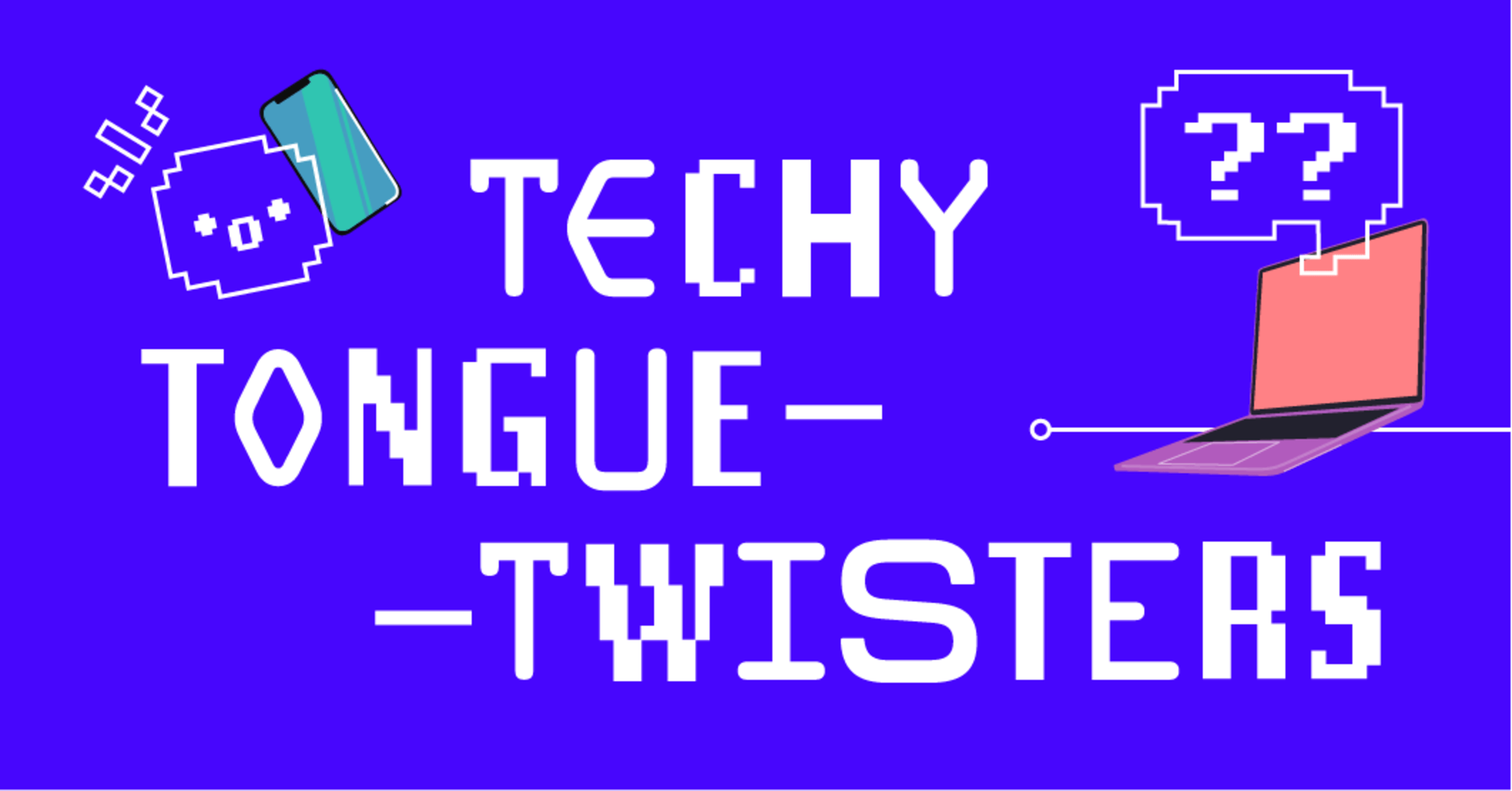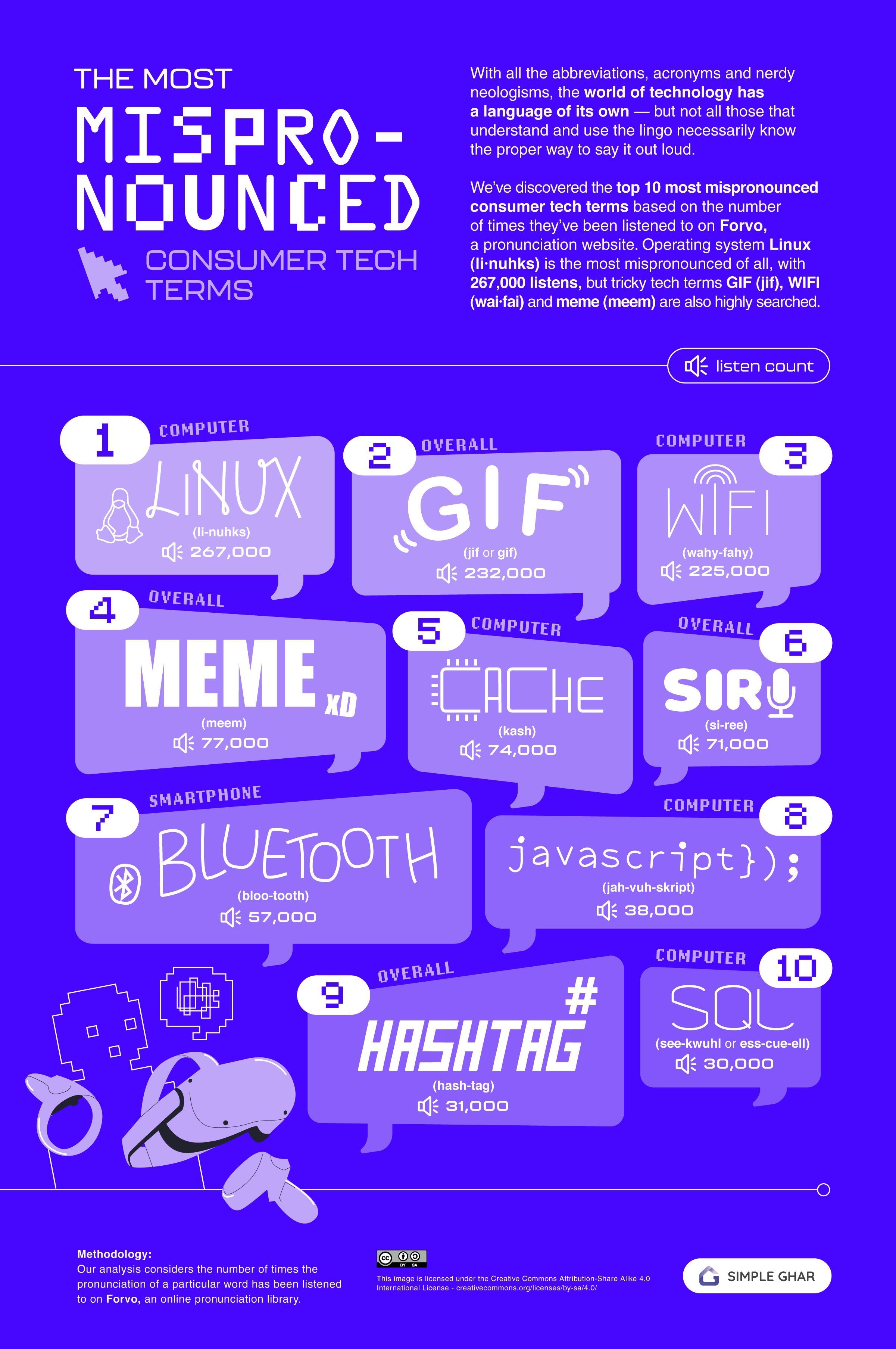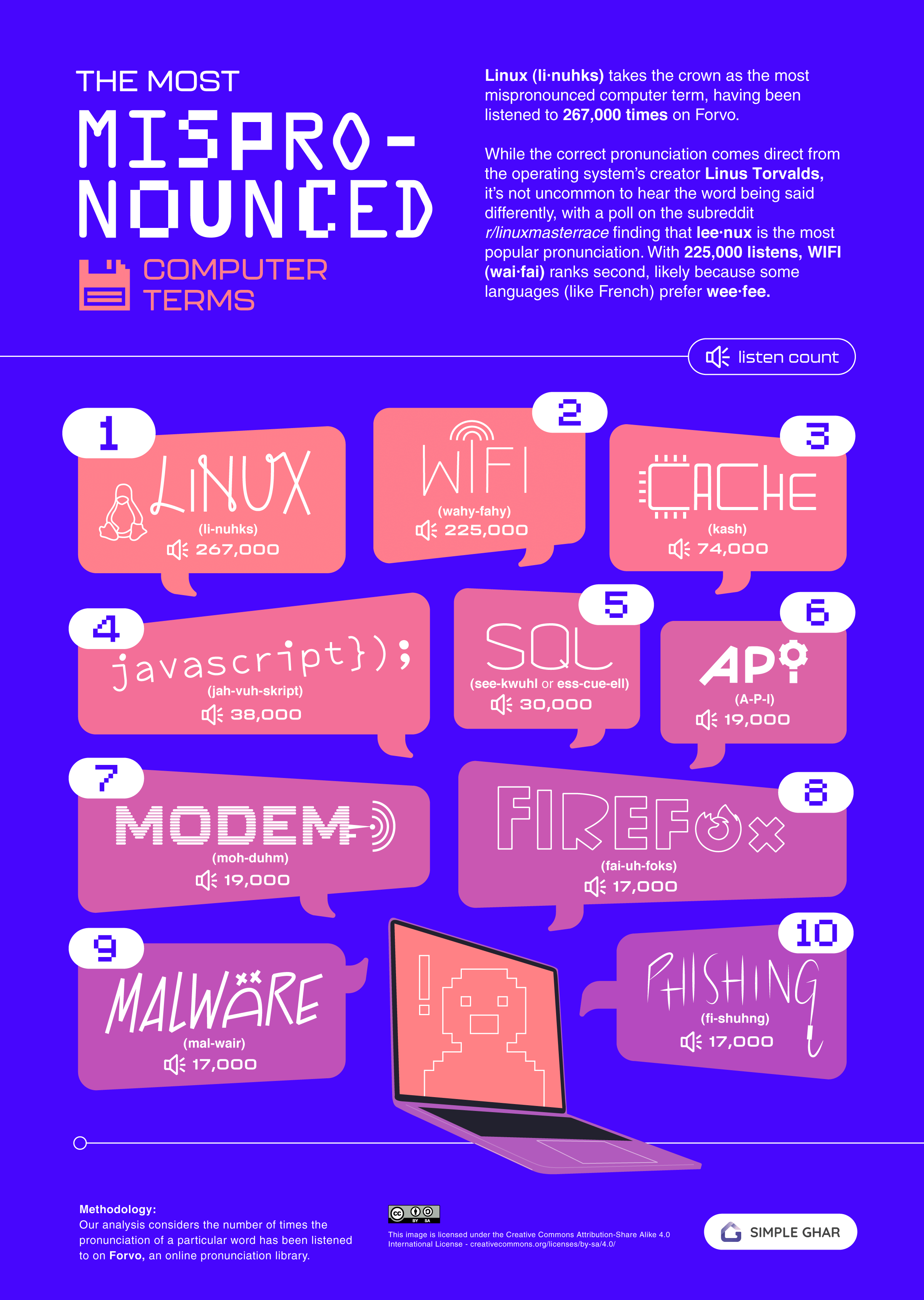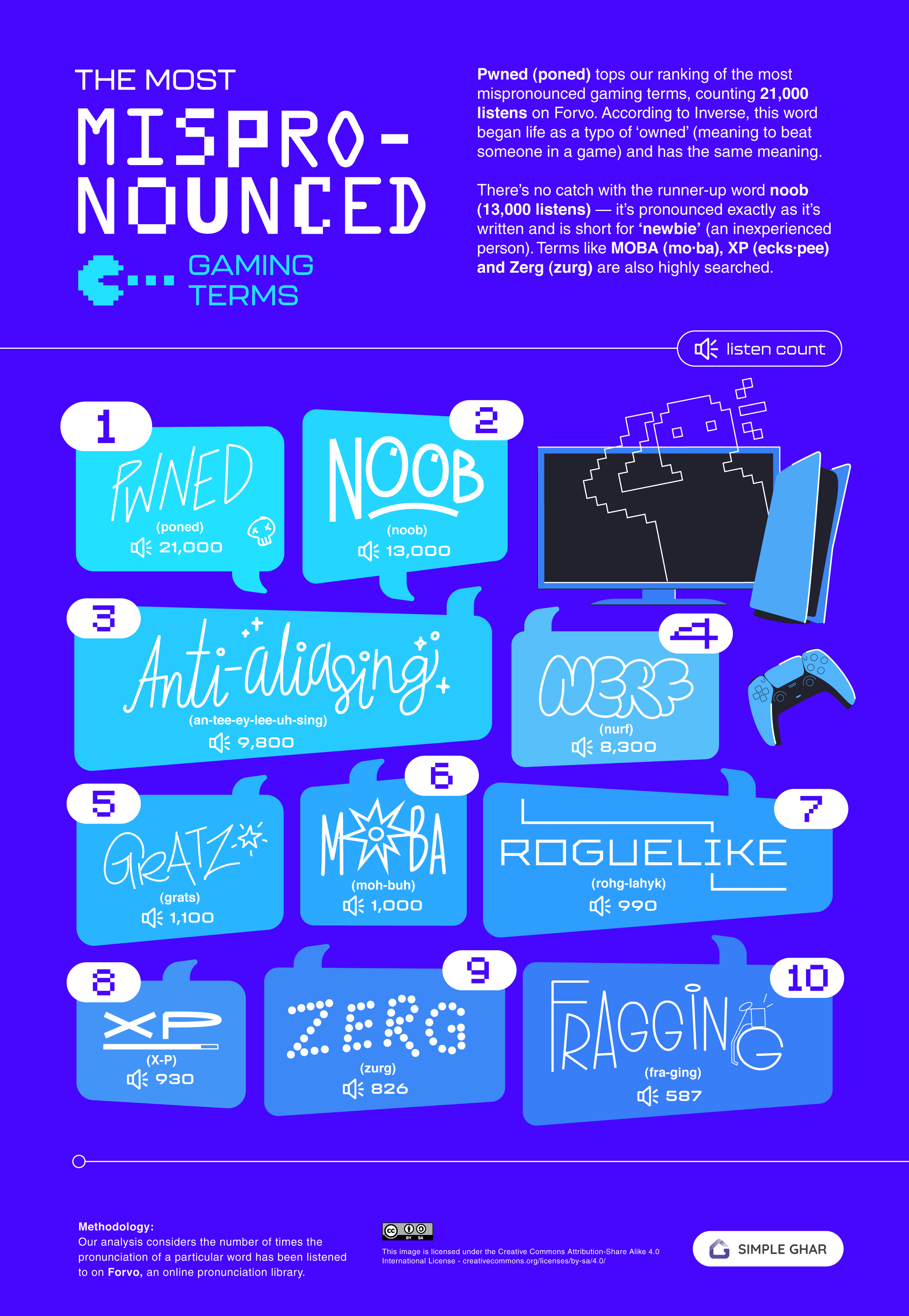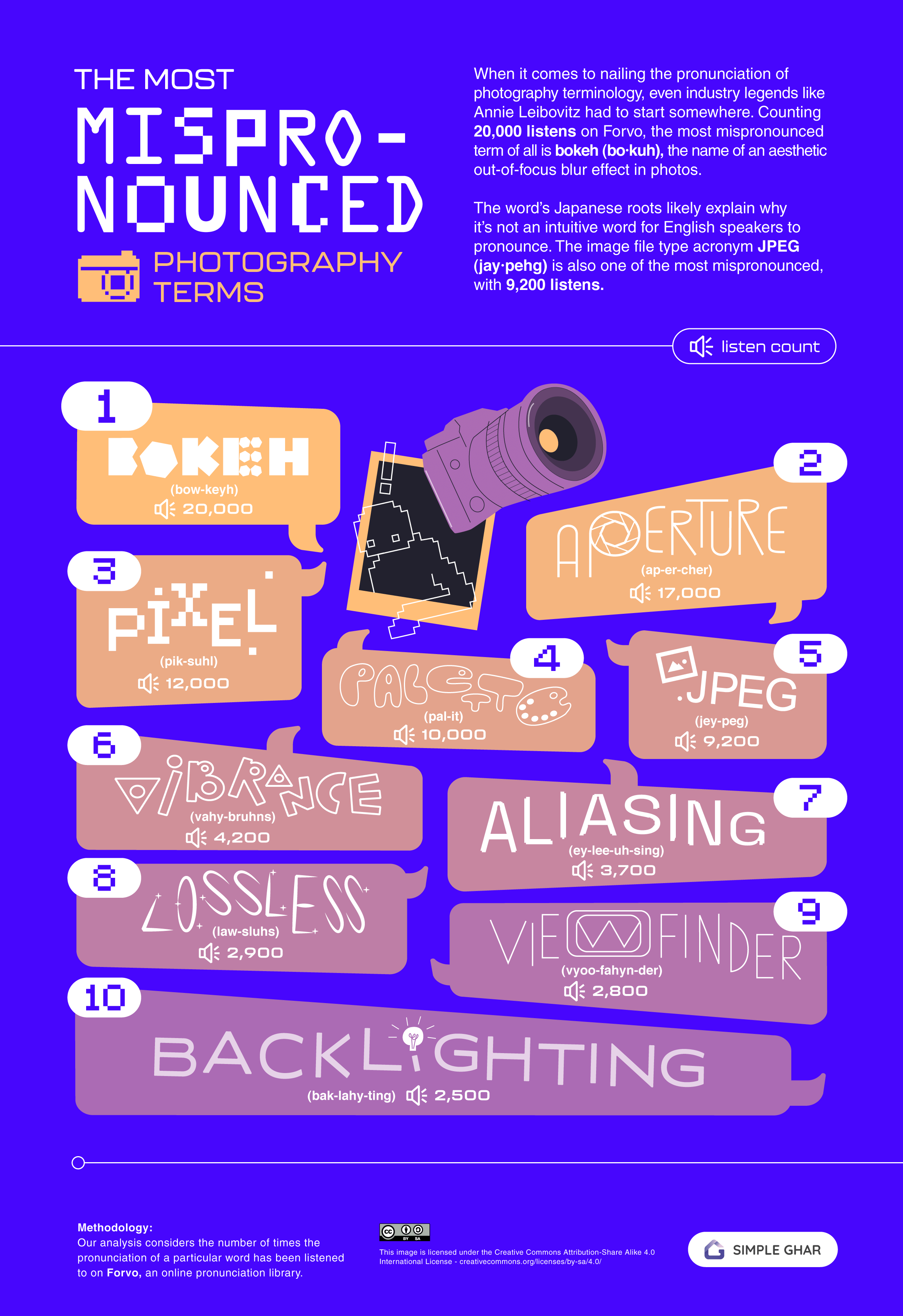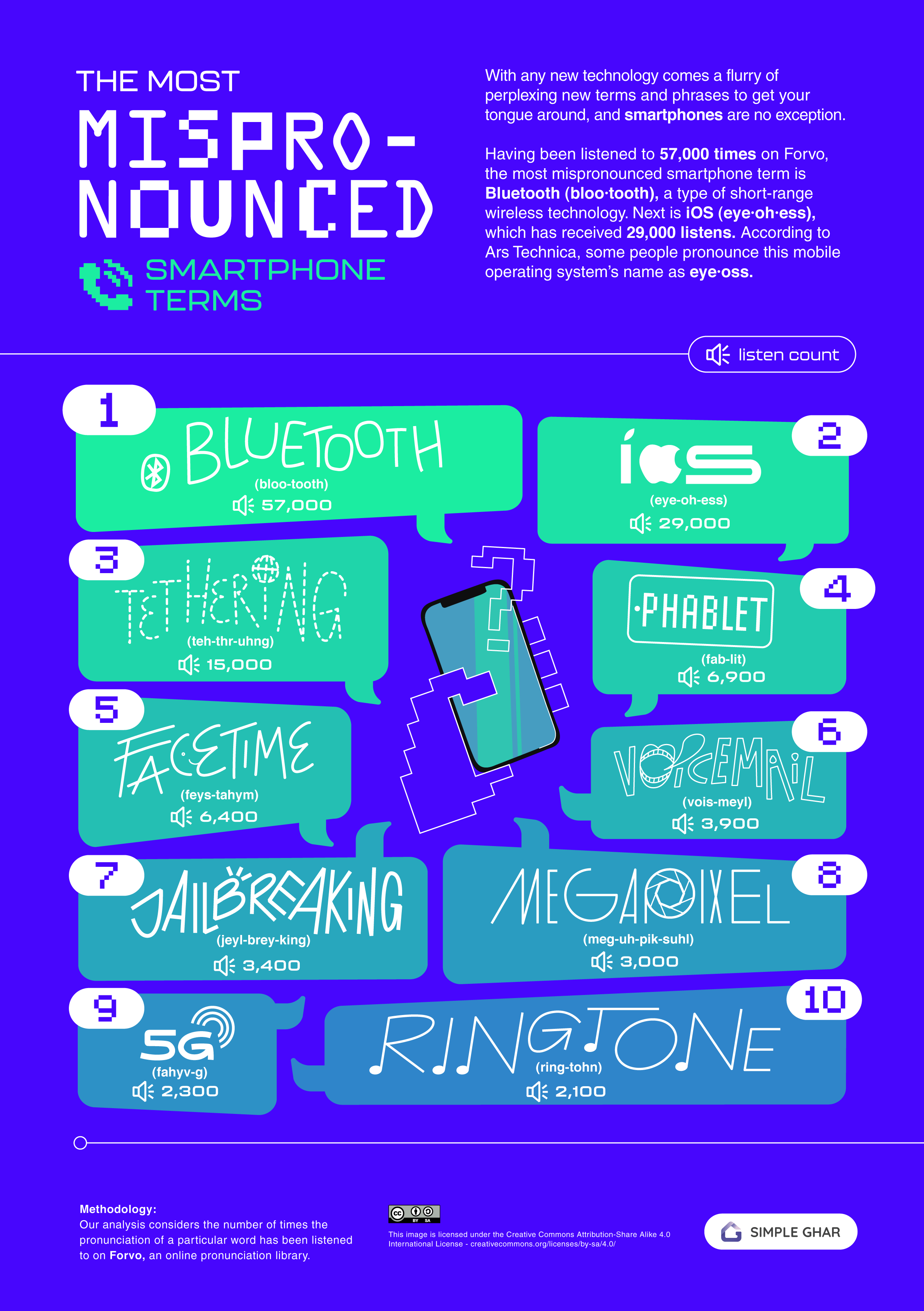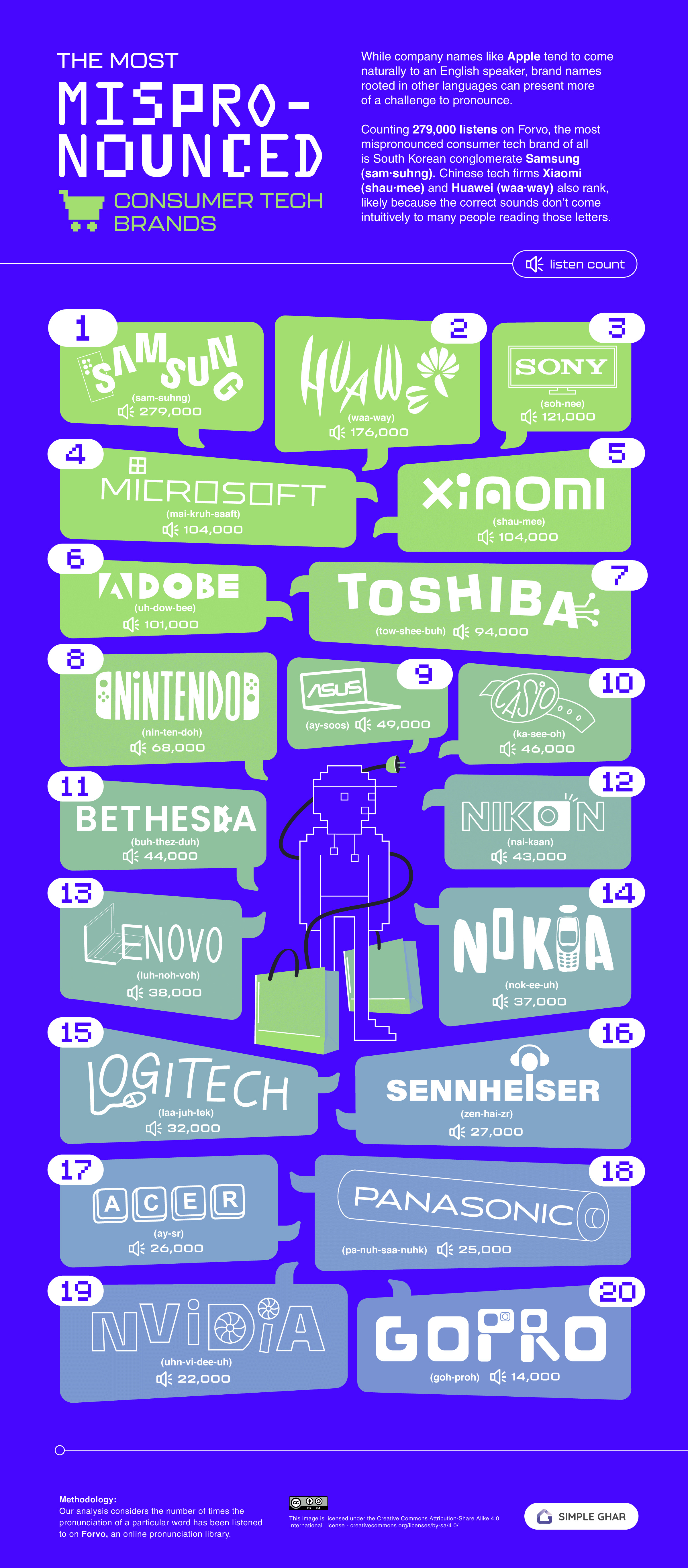You say Wye-Fye. I say Wee-Fee. Should we just switch the whole thing off?
Not just yet. Wye-Fye is the standard English pronunciation of Wi-Fi, but Wee-Fee is an acceptable (and cuter) alternative in French, Spanish and several other European languages (the Polish swap in a “V” sound: Vee-Fee). In other words, the signal you get depends on where you’re standing.
English has become the internet’s first language, accounting for 60% of the web’s content, but only 16.2% of the world speaks it. No wonder such common terms have grown multiple pronunciations! Plus, there are plenty of tech words that evade the intuition of first-language English speakers (pwned/poned, Xiaomi/SHAU-mee). And then notoriously tricky exceptions: here’s looking at you, .gif (jiff)!
As the world’s conversations (and tech gossip) continue online in English, it’s understandable that the Wee-Fees and Vee-Fees and even the Scandinavian Wifeys of the world are keen to know the most commonly understood pronunciation of everyday tech terms. In such a subjective field, SimpleGhar wondered which terms and brands cause the most consternation — so we did some research to find out the words that users double-check the most.
What We Did
SimpleGhar first created a longlist of common consumer tech words and brands. We then retrieved the number of times the pronunciation of each word has been listened to on the online pronunciation library Forvo and ranked the results.
Key Findings
- Linux (li-nuhks) is the most mispronounced consumer tech term, with 267,000 listens on the pronunciation search site Forvo.
- Samsung (sam-suhng) is the most mispronounced tech brand, with 279,000 listens.
- Bluetooth (bloo-tooth) is the most mispronounced phone term (57,000 listens).
- Pwned (poned) is the most mispronounced gaming term (21,000 listens).
- Bokeh (bo-kuh) is the most mispronounced photography term (20,000 listens).
Click here to see the image in full size
Computing: There’s No Lie in Linux
Click here to see the image in full size
Linux pips Wi-Fi to the top as the most mispronounced consumer tech term in computing and, indeed, across all tech terms. The open-source operating system was created by Finnish software engineer Linus Torvalds in 1991, and there lies the key to pronouncing it correctly: lee-nuhks, approximating the Finnish pronunciation of Torvalds’ first name with an x on the end, as he personally clarified over thirty years ago.
Gaming: Pwned and Noob Among Mispronounced Words Invented by Gamers
Click here to see the image in full size
While brand names and operational terms have more formal roots, gaming’s most baffling words have evolved — or sprouted, unbidden — among very online communities. The backstory of these words can be rather murky, as is the case with gaming’s most unpronounceable word, Pwned. Some say it’s an old chess taunt (from “pawn”), some an acronym for the hacker zine Phrack World News, and others that it’s a typo of “owned.” In this case, the typo provides the clue: pwned is pronounced like owned with a p on the front.
Photo: The Photography Technique That’s Harder to Say Than To Achieve
Click here to see the image in full size
You may have seen it written, but have you ever dared say it? Bokeh “is properly pronounced with bo as in bone and ke as in Kenneth, with equal stress on either syllable,” according to Mike Johnston, who popularized the Japanese photographic term in his magazine Photo Techniques in 1997. Use of the word, which Adobe says “generally refers to the aesthetic quality of an image’s background blur,” has blossomed along with the growth of digital photography (although there’s nothing about it that excludes analog film). Today, the Bokeh effect is an Instagram mainstay and much-discussed in online forums — meaning there’s a good chance that the average camera-slinger may have read it but much less heard it pronounced out loud.
Phone: Bluetooth’s Viking Etymology
Click here to see the image in full size
It may seem strange that 57,000 people have searched for the pronunciation of Bluetooth (bloo-tooth), a word that appears to be two very simple English words stuck together. But those with English as a second language might not recognize that there are two familiar syllables at play. Indeed, those two words were already stuck together when first used to describe the technology, which is named after the Viking King Harald “Bluetooth” Gormsson (bonus fact: the Bluetooth logo is a combination of the runes ᚼ (Hagall) and ᛒ (Bjarkan) from Harald’s initials). If you don’t fancy the English or Viking pronunciation, you can always go for the way cooler French DJ style.
Brands: The Everyday Korean and Chinese Brand Names You’re Saying Wrong
Click here to see the image in full size
Brand names pose a particular challenge for English speakers, with searches on how to pronounce them eclipsing the search counts for other types of tech terms. Tech brands tend to have names that are made up or hybridized, or which originate in a non-English language. The most-searched brand of all may seem to have a relatively approachable pronunciation: Samsung, which is Korean for “three stars” and was chosen to evoke eternal power. But English speakers often neglect to use the Korean pronunciation, sam-suhng/sam-soong. Samsung’s Chinese competitor, Huawei, causes less consternation. However, its pronunciation is less intuitive than Samsung’s: waa-way, which brings us back to Wee-Fee and everything sounding better if you pretend to be French.
In the Beginning, Was the Weird Word
Wouldn’t it be a dull world if we all pronounced tech names and terms the right way?
Some mispronunciations are due to conflicting languages, but others reveal how we look at words in different ways from each other. For example, it might never cross your mind to pronounce iOS as a word rather than an acronym, but that’s how plenty of people see it.
While those rare souls who say “eye-oss” rather than i-o-s undoubtedly save precious seconds with all the accumulated dropped syllables, i-o-s is the correct term — and this judgment call comes from a higher being (Steve Jobs). Which is a good reminder that even if it’s fine to ‘re-claim’ words from the tech we use every day, there is usually a right answer which — if less pronounceable — has an interesting human story behind it.
METHODOLOGY & SOURCES
SimpleGhar first curated a list of consumer tech terms and brands from tech websites such as www.gsmarena.com and https://photographycourse.net. The tech terms in our analysis belong to the following categories: computers, gaming, photography and smartphones.
We then searched each term on the Forvo pronunciation library and recorded the number of listens for each term.
We could then rank the terms (overall and for each tech category) by the number of listens recorded for each. We consider the term with the most listens as being the most mispronounced.
The data was collected in March 2023.

